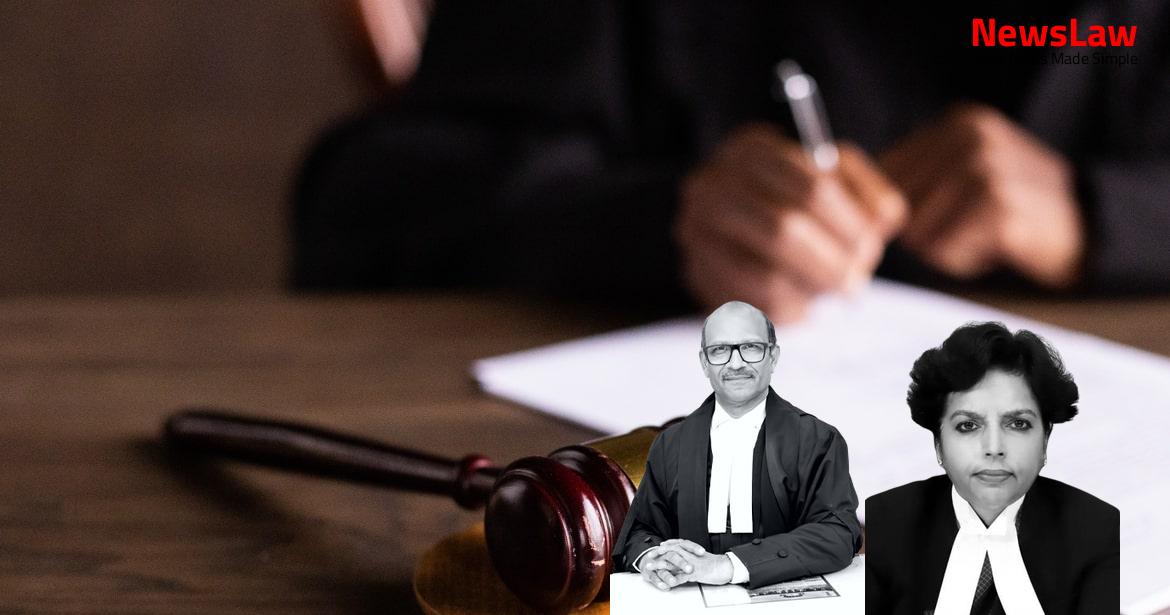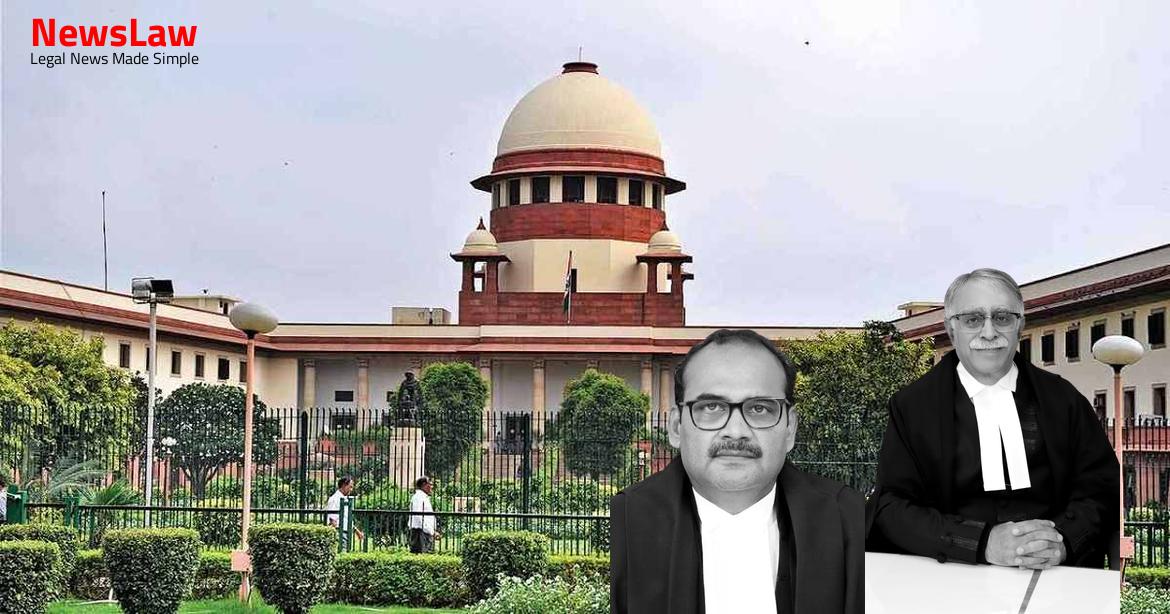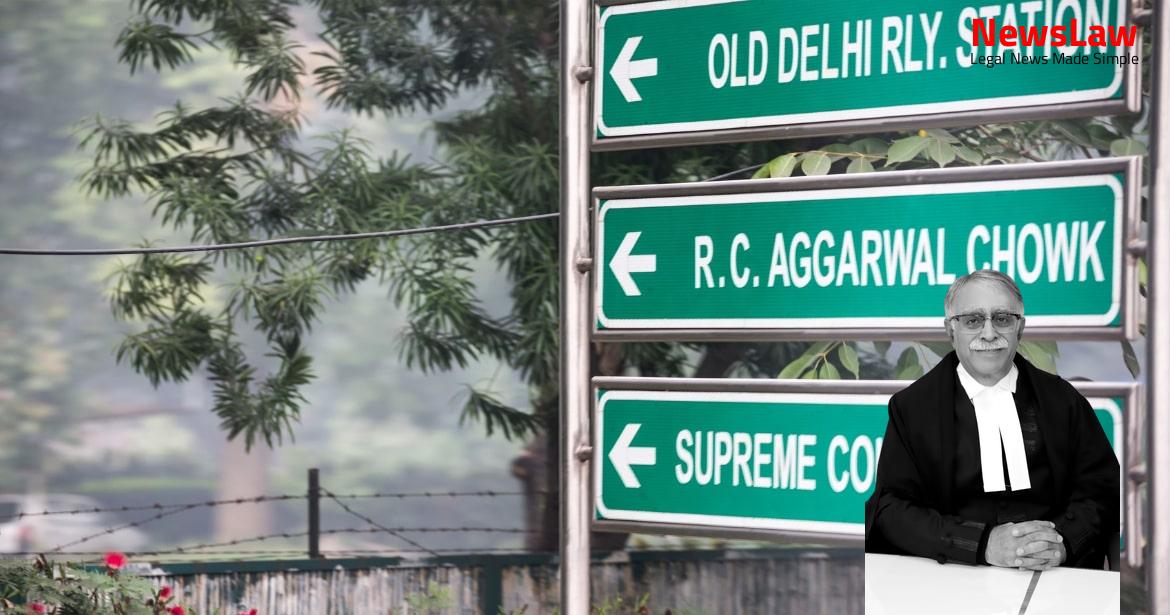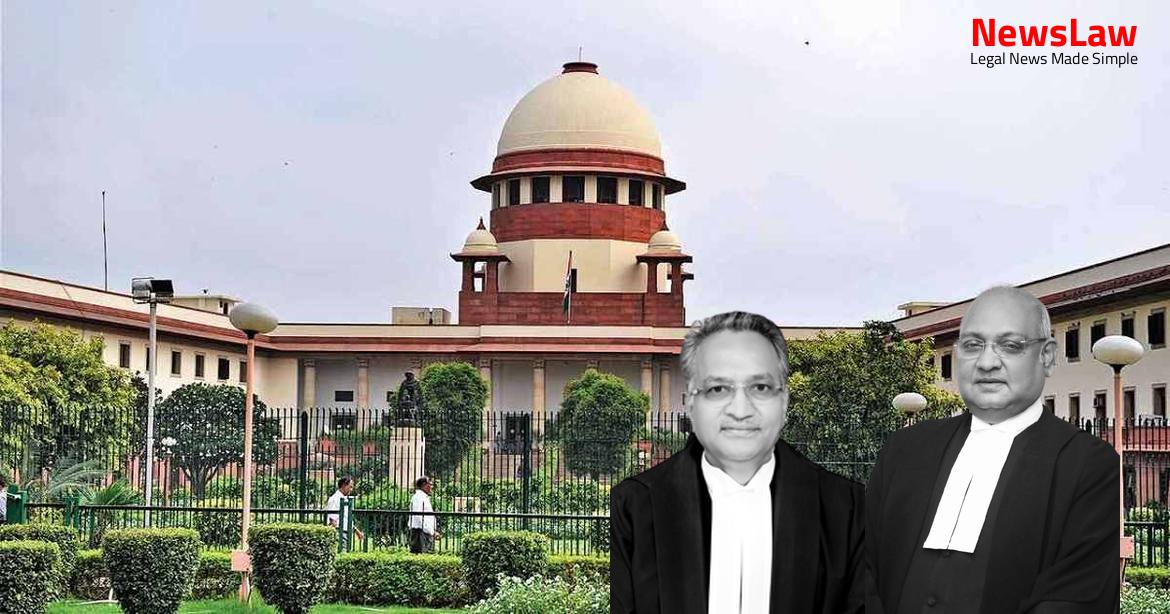In a significant decision, the Supreme Court of India delivered a landmark judgment on the case of custodial death, where the accused Vinod Jaswantray Vyas and co-accused Chinubhai Govindbhai Patel were acquitted following a thorough legal scrutiny. The judgment, dated 13 February, 2017, sheds light on the complexities surrounding the prosecution’s case and the crucial role of eyewitness testimonies in criminal jurisprudence.
Facts
- The accused appellant Vinod Jaswantray Vyas and his co-accused Chinubhai Govindbhai Patel were convicted for the offences punishable under Section 302 read with Section 114 IPC.
- They were sentenced to imprisonment for life and a fine of Rs. 25,000 each, in default of which they were to undergo rigorous imprisonment for two years.
- The Division Bench of the High Court of Gujarat partially accepted Vinod Jaswantray Vyas’ appeal, altering his conviction to an offence under Section 304 Part I IPC.
- He was sentenced to undergo eight years of rigorous imprisonment and ordered to pay a compensation of Rs. 50,000 to the heirs of the deceased.
- The Gujarat High Court affirmed the guilt of both accused but toned down the offence from Section 302 IPC to Section 304 Part I IPC in the judgment dated 13 February, 2017.
- The appeal challenged the modified conviction and sentence through special leave.
- Jeeva, the deceased, had significant criminal antecedents.
- Jeeva was brought to court on June 11, 1992, but did not complain to the Magistrate about any mistreatment by the police officials.
- Jeeva, along with the co-accused Anna Dorai, surrendered at the Amraiwadi Police Station.
- The postmortem report revealed various external and internal injuries on Jeeva’s body.
- Jeeva’s sister lodged a complaint regarding custodial torture leading to Jeeva’s death.
- The accused abjured their guilt and claimed trial.
- The original accused No.2, who was the Superintendent of Police, arrived at the police station later.
- Charges were framed against both accused for the offence punishable under Section 302 read with Section 114 IPC.
- The two police officers allegedly assaulted Jeeva causing multiple injuries, leading to his unconsciousness and subsequent death.
- During the pendency of the appeal, the sentence awarded to the accused appellant(A1) was suspended, and he was released on bail.
Also Read: Judgment Upholding Conviction: State of Punjab vs. Accused
Arguments
- The accused appellant, a seasoned police officer, is unlikely to have used sticks to assault the victim due to the risk of visible marks and detection.
- The victim, Jeeva, did not raise any grievance of custodial torture before the remand Magistrate, casting doubt on the prosecution’s case.
- The possibility of Jeeva being assaulted by co-prisoners in Sabarmati Central jail is highlighted as injuries were fresh and could have been inflicted within six hours of death.
- Evidence suggests that Jeeva may have suffered fatal injuries while confined in the Sabarmati Central jail.
- Eyewitnesses’ accounts of the assault on Jeeva raise questions about the consistency and timing of the alleged assaults by the accused persons.
- Ms. Deepanwita Priyanka, standing counsel for the State of Gujarat, opposed the submissions by the appellant’s senior counsel.
- Witnesses Nyakar Vasudev(PW-3), Selvin Prabhakar(PW-1), and Dhanlakshmi Vaiyapuri(PW-2) provided reliable and trustworthy evidence supporting the prosecution’s case.
- The presence of witnesses at the Amraiwadi Police Station was not disputed by the accused.
- Jeeva(deceased) confided in his sister about the violence he faced in custody, leading to a prompt telegram to the DGP office.
- Accused persons allegedly influenced the investigation leading to a delay in filing the criminal case.
- The trial court and High Court recorded findings holding the accused responsible for Jeeva’s death based on witness testimony.
- Witnesses had no motive to falsely implicate the accused in the murder of Jeeva.
Also Read: Employees’ State Insurance Corporation vs. Nagar Nigam: Workshop Classification under ESIC Act
Analysis
- The evidence provided by the prosecution witnesses, Selvin Prabhakar(PW-1) and Dhanlakshmi Vaiyapuri(PW-2), is under scrutiny.
- The medical evidence from Dr. Nayankumar Natvarlal Parikh (Medical Jurist) is deemed critical in light of Jeeva’s death.
- Contradictions and discrepancies in the eyewitness testimonies raise doubts about the truthfulness of their accounts.
- The conduct of the eyewitnesses and their failure to inform their advocate about the alleged custodial torture cast suspicion on their credibility.
- The lack of collaboration from the expert witness (Dr. Ravindra Shrikrishna Bhise) in explaining his opinion further weakens the prosecution’s case.
- The expert’s acknowledgment that the performing doctor would have better insights into the injuries’ timing undermines the prosecution’s stance.
- Issues regarding the motive attributed to the accused police officials also remain ambiguous.
- The suspicion on the eyewitnesses’ motivations and behaviors calls into question the legitimacy of the allegations against the accused officers.
- The failure to seek immediate legal action post the alleged assault adds complexity to the case.
- An emphasis on the prison authorities’ records and possible inferences from them are highlighted for a clearer understanding of the events surrounding Jeeva’s death.
- In cases of contradiction between medical and ocular evidence, the medical evidence may affect the credibility of ocular testimony if it makes the ocular testimony improbable.
- Complete ruling out of the possibility of ocular evidence being true by medical evidence may lead to disbelief in the ocular evidence.
- Unnatural conduct of witnesses can raise doubts on the credibility of their testimony.
- Unexplained circumstances and unnatural conduct can be grounds for disbelieving a witness.
- The behavior of witnesses may differ based on individual reactions and situations.
- Courts should consider unnatural conduct of witnesses as a relevant factor in evaluating their testimony and credibility.
- Character and reputation are interconnected, and the conduct of a witness under Section 8 of the Evidence Act is relevant in determining their reputation.
- Suspicion is not a substitute for proof in criminal jurisprudence; evidence must be admissible and acceptable according to law.
- Expectation of uniformity in witness reactions is unrealistic, but absolutely unnatural behavior may lead to disbelief in the witness testimony.
- The prosecution failed to prove the guilt of both accused persons due to lack of convincing evidence.
- The convictions of Vinod Jaswantray Vyas (A1) and Chinubhai Govindbhai Patel (A2) are not sustainable.
- Chinubhai Govindbhai Patel (A2) should also benefit from the conclusions drawn in this appeal, despite not filing an appeal.
- Vinod Jaswantray Vyas (A1) deserves to be acquitted of the charges.
Also Read: Dismissal of Writ Petitions by Supreme Court in Mr. R.S. Madireddy v. Talace India Pvt Ltd. Case
Decision
- Pending application(s) disposed of.
- Judgment dated 4 March, 1997 by trial Court quashed.
- Judgment dated 13 February, 2017 by Division Bench of High Court quashed.
- Accused Vinod Jaswantray Vyas (A1) acquitted.
- Accused Chinubhai Govindbhai Patel (A2) acquitted.
- Appeal allowed.
Case Title: VINOD JASWANTRAY VYAS (DEAD) THROUGH L.R.S Vs. THE STATE OF GUJARAT (2024 INSC 490)
Case Number: Crl.A. No.-002038-002038 – 2017



